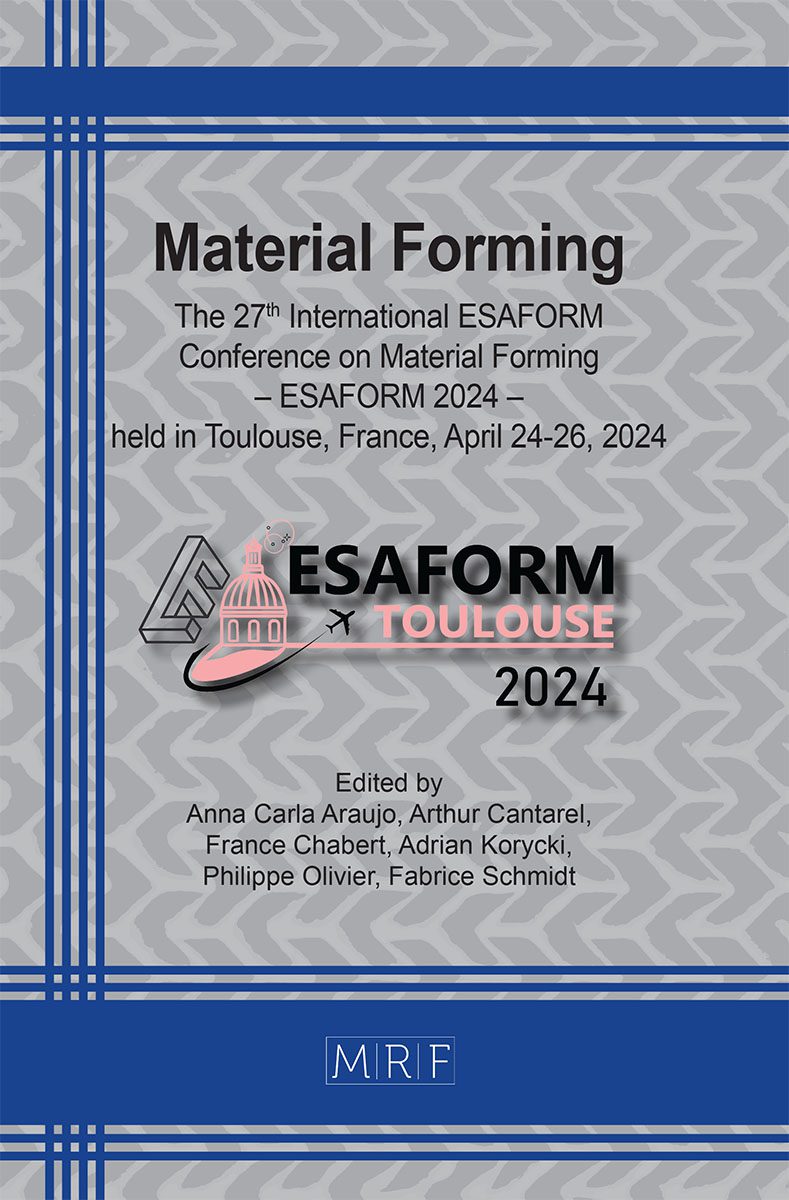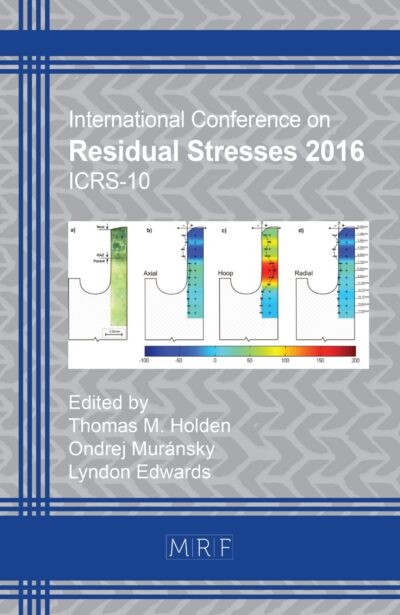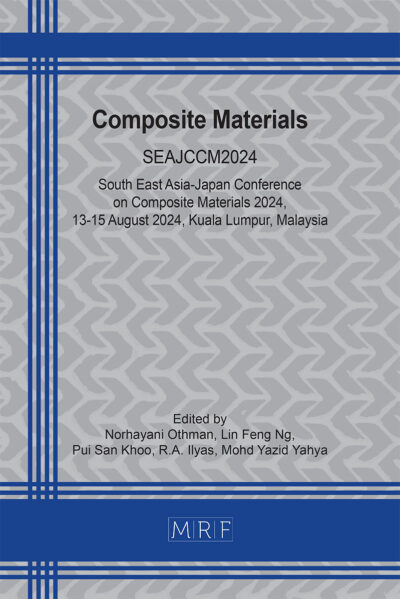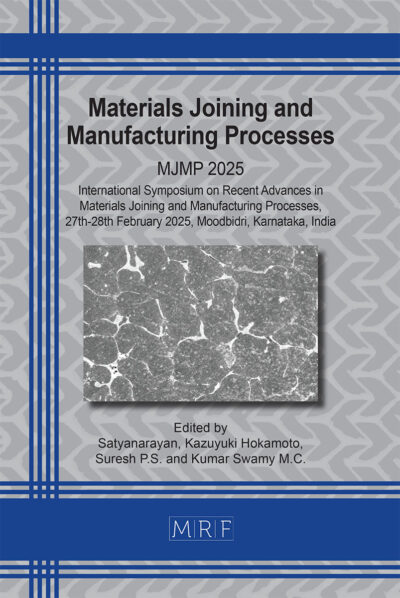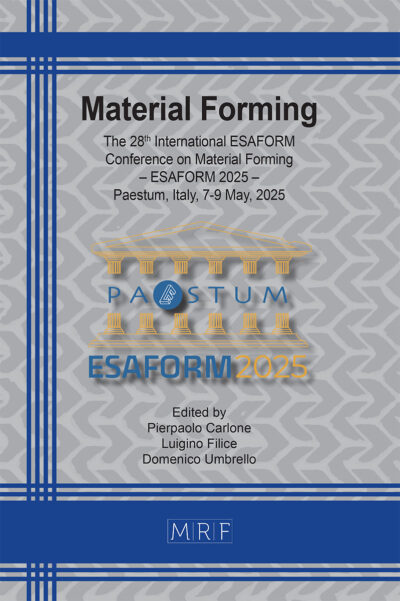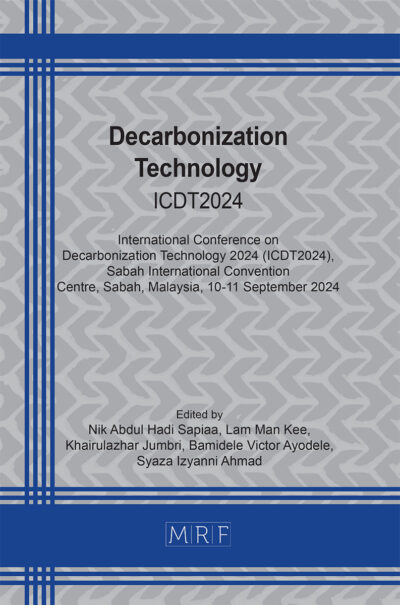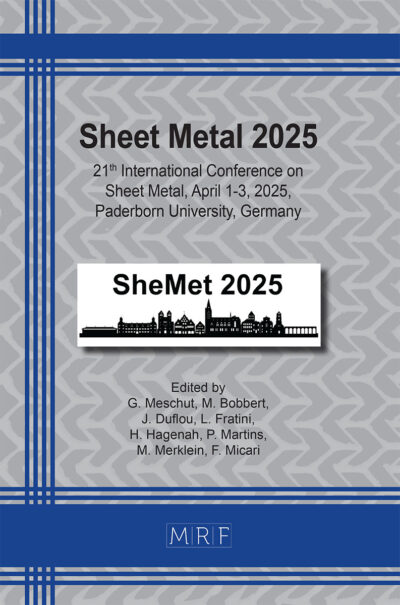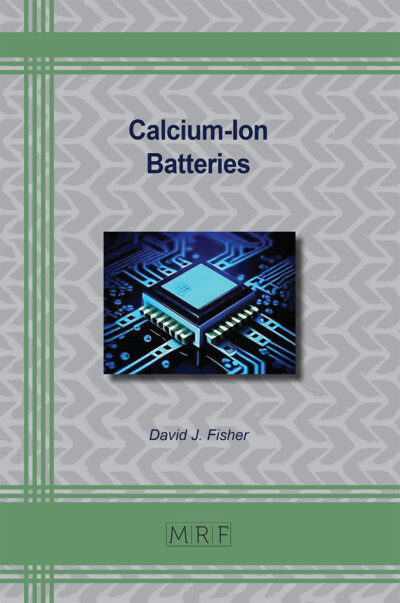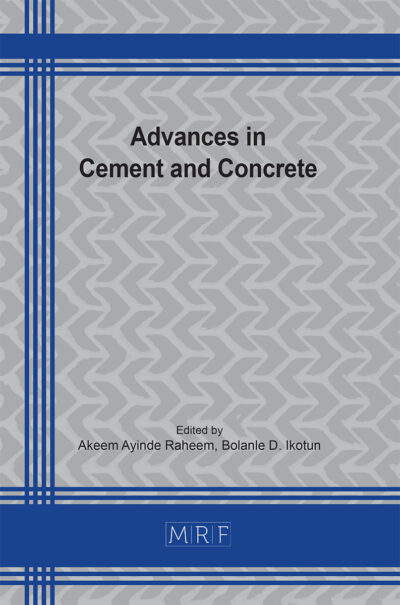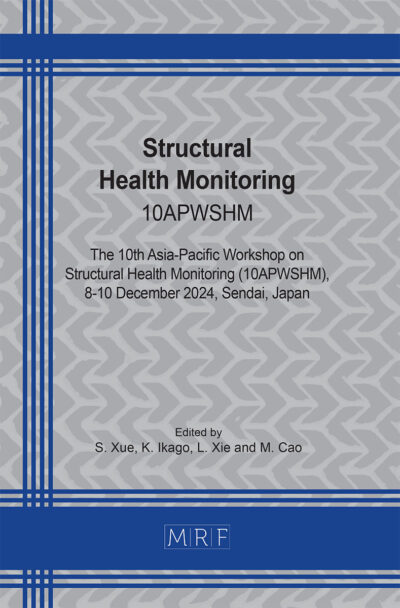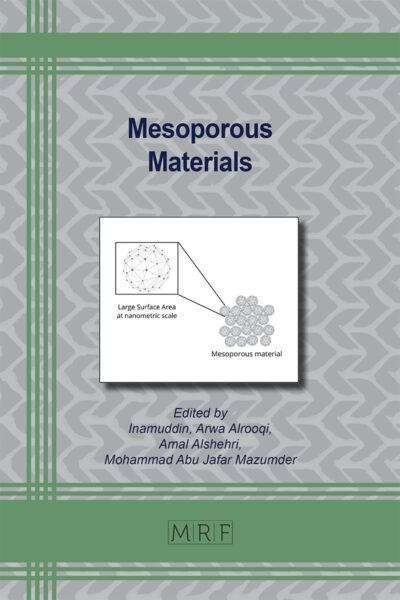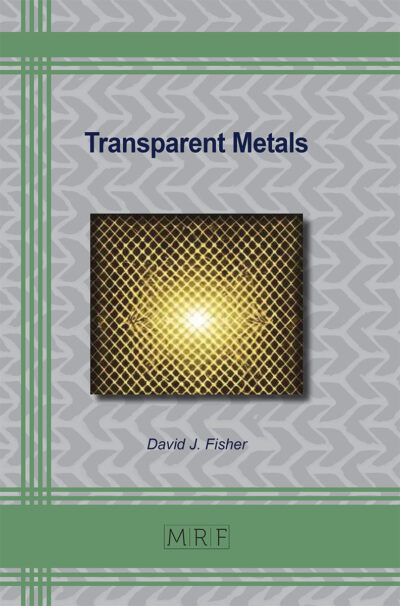–
Spindle speed effect on the ISF processing of materials with different thermal conductivities
QIN Zhenyuan, GATEA Shakir, OU Hengan
download PDFAbstract. Incremental sheet forming (ISF) is an advanced forming technology with high flexibility and excellent adaptability. However, conventional ISF encounters challenges in processing of hard-to-deformed materials at room temperature. To address this problem, friction stir incremental forming (FSIF) has been introduced to improve material formability at high temperatures. The aim of this work is to investigate the spindle speed effect on the forming quality for materials with different thermal conductivities by using an experimental and FE simulation. The experimental results presented the combined effect of spindle speed and conductivity on the springback and surface finish of AA1050 and CP Ti Grade 1. A good agreement was obtained in the temperature increase and distribution from experimental testing and FE simulation.
Keywords
Incremental Sheet Forming, Thermal Conductivity, Springback, Surface Finish, Finite Element Method
Published online 4/24/2024, 9 pages
Copyright © 2024 by the author(s)
Published under license by Materials Research Forum LLC., Millersville PA, USA
Citation: QIN Zhenyuan, GATEA Shakir, OU Hengan, Spindle speed effect on the ISF processing of materials with different thermal conductivities, Materials Research Proceedings, Vol. 41, pp 1606-1614, 2024
DOI: https://doi.org/10.21741/9781644903131-178
The article was published as article 178 of the book Material Forming
![]() Content from this work may be used under the terms of the Creative Commons Attribution 3.0 license. Any further distribution of this work must maintain attribution to the author(s) and the title of the work, journal citation and DOI.
Content from this work may be used under the terms of the Creative Commons Attribution 3.0 license. Any further distribution of this work must maintain attribution to the author(s) and the title of the work, journal citation and DOI.
References
[1] H. Zhu, H. Ou, A. Popov, Incremental sheet forming of thermoplastics: a review, The International Journal of Advanced Manufacturing Technology. 111 (2020) 565-587. https://doi.org/10.1007/s00170-020-06056-5
[2] W. Peng, H. Ou, Deformation mechanisms and fracture in tension under cyclic bending plus compression, single point and double-sided incremental sheet forming processes, International Journal of Machine Tools and Manufacture. 184 (2023) 103980. https://doi.org/10.1016/j.ijmachtools.2022.103980
[3] M. Li, R. Wu, S. Cai, Z. Chang, Z. Wang, J. Chen, Experimental investigation on friction-stir-assisted incremental forming with synchronous bonding of aluminum alloy and steel sheets, Journal of Materials Engineering and Performance. 29 (2020) 750-759. https://doi.org/10.1007/s11665-020-04600-8
[4] Z. Wang, S. Cai, J. Chen, Experimental investigations on friction stir assisted single point incremental forming of low-ductility aluminum alloy sheet for higher formability with reasonable surface quality, Journal of Materials Processing Technology. 277 (2020) 116488. https://doi.org/10.1016/j.jmatprotec.2019.116488
[5] P.A. Grün, E.H. Uheida, L. Lachmann, D. Dimitrov, G.A. Oosthuizen, Formability of titanium alloy sheets by friction stir incremental forming, The International Journal of Advanced Manufacturing Technology. 99 (2018) 1993-2003. https://doi.org/10.1007/s00170-018-2541-5
[6] A. Formisano, F. Lambiase, M. Durante, Polymer self-heating during incremental forming, Journal of Manufacturing Processes. 58 (2020) 1189-1199. https://doi.org/10.1016/j.jmapro.2020.09.031
[7] L. Li, J. Wang, Equivalent heating tool method for numerical simulation for sheet temperature in frictional stir incremental forming, The International Journal of Advanced Manufacturing Technology. 107 (2020) 1251-1263. https://doi.org/10.1007/s00170-020-05042-1
[8] S. Cai, R. Wu, Z. Wang, M. Li, J. Chen, Numerical simulation of friction stir-assisted incremental forming with synchronous bonding of heterogeneous sheet metals, The International Journal of Advanced Manufacturing Technology. 106 (2020) 2747-2763. https://doi.org/10.1007/s00170-019-04792-x
[9] N. Duc-Toan, P. Jin-Gee, K. Young-Suk, Combined kinematic/isotropic hardening behavior study for magnesium alloy sheets to predict ductile fracture of rotational incremental forming, International Journal of Material Forming. 3 (2010) 939-942. https://doi.org/10.1007/s12289-010-0923-9
[10] A. Giuseppina, C. Claudio, F. Luigino, G. Francesco, Theoretical model for temperature prediction in incremental sheet forming–experimental validation, International Journal of Mechanical Sciences. 108 (2016) 39-48. https://doi.org/10.1016/j.ijmecsci.2016.01.030
[11] G. Li, Z. He, J. Ma, H. Yang, H. Li, Springback analysis for warm bending of titanium tube based on coupled thermal-mechanical simulation, Materials. 14 (2021) 5044. https://doi.org/10.3390/ma14175044

